James Todd Smith (born January 14, 1968), known professionally as LL Cool J (short for Ladies Love Cool James),[3] is an American rapper and actor.[4] He is one of the earliest rappers to achieve commercial success, alongside fellow new school hip hop acts Beastie Boys and Run-DMC.
Signed to Def Jam Recordings in 1984, LL Cool J's breakthrough came with his single "I Need a Beat" and his landmark debut album, Radio(1985). He achieved further commercial and critical success with the albums Bigger and Deffer(1987), Walking with a Panther (1989), Mama Said Knock You Out (1990), Mr. Smith (1995), and Phenomenon (1997). His twelfth album, Exit 13(2008), was his last in his long-tenured deal with Def Jam. He later re-signed with the label and released his fourteenth album, The FORCE(2024).
LL Cool J has appeared in numerous films, including Halloween H20, In Too Deep, Any Given Sunday, Deep Blue Sea, S.W.A.T., Mindhunters, Last Holiday, and Edison. He played NCIS Special Agent Sam Hanna in the CBS crime drama television series NCIS: Los Angeles and NCIS: Hawaiʻi. LL Cool J was also the host of Lip Sync Battle on Paramount Network.[5][6]
A two-time Grammy Award winner, LL Cool J is known for hip hop songs such as "Going Back to Cali", "I'm Bad", "The Boomin' System", "Rock the Bells", and "Mama Said Knock You Out", as well as R&B hits such as "Doin' It", "I Need Love", "Around the Way Girl" and "Hey Lover". In 2010, VH1 placed him on their "100 Greatest Artists Of All Time" list.[7] In 2017, LL Cool J became the first rapper to receive the Kennedy Center Honors.[8]In 2021, he was inducted into the Rock and Roll Hall of Fame in the Musical Excellence category.[9]
Early life and family
James Todd Smith was born on January 14, 1968, in Bay Shore, on Long Island, New York to Ondrea Griffith (born January 19, 1946) and James Louis Smith Jr,[10] also known as James Nunya.[11][12][13]His 1997 memoir says his father abused his mother.[14] According to the Chicago Tribune, "[As] a kid growing up middle class and Catholic in Queens, life for Smith was heart-breaking. His father shot his mother and grandfather, nearly killing them both. When 4-year-old Smith found them, blood was everywhere."[15] In 1972, Smith and his mother moved into his grandparents' home in St. Albans, Queens, where he was raised.[16][17] He suffered physical and mental abuse from his mother's ex-boyfriend Roscoe.[15]
Smith began rapping at the age of 10, influenced by the hip-hop group The Treacherous Three. In 1984, sixteen-year-old Smith was creating demo tapes in his grandparents' home.[18] His grandfather, a jazz saxophonist, bought him $2,000 worth of equipment, including two turntables, an audio mixer and an amplifier.[19]During this time, Smith reconciled with his father who "made amends for a lot of things" by offering him guidance at the start of his music career.[15][12][20] His mother was also supportive of his musical endeavors, using her tax refund to buy him a Korg drum machine.[21] Smith has stated that by the time he received musical equipment from his relatives, he "was already a rapper. In this neighborhood, the kids grow up in rap. It's like speaking Spanish if you grow up in an all-Spanish house."[19] This was at the same time that NYUstudent Rick Rubin and promoter-managerRussell Simmons founded the then-independent Def Jam label. By using the mixer he had received from his grandfather, Smith produced and mixed his own demos and sent them to various record companies throughout New York City, including Def Jam.[19]
Musical career
In the VH1 documentary Planet Rock: The Story of Hip Hop and the Crack Generation, Smith revealed that he initially called himself J-Ski, but did not want to associate his stage name with the cocaine culture (The rappers who use "Ski" or "Blow" as part of their stage name, e.g., Kurtis Blow and Joeski Love, were associated with the rise of the cocaine culture, as depicted in the 1983 remake of Scarface.) Under his new stage name LL Cool J (an abbreviation for Ladies Love Cool James), coined by his friend and fellow rapper Mikey D,[22][16] Smith was signed by Def Jam, which led to the release of his first official record, the 12-inch single "I Need a Beat" (1984).[18] The single was a hard-hitting, streetwise b-boy song with spare beats and ballistic rhymes.[18] Smith later discussed his search for a label, stating "I sent my demo to many different companies, but it was Def Jam where I found my home."[23] That same year, Smith made his professional debut concert performance at Manhattan Center High School. In a later interview, LL Cool J recalled the experience, stating "They pushed the lunch room tables together and me and my DJ, Cut Creator, started playing. ... As soon as it was over there were girls screaming and asking for autographs. Right then and there I said 'This is what I want to do'."[24] LL's debut single sold over 100,000 copies and helped establish both Def Jam as a label and Smith as a rapper. The commercial success of "I Need a Beat", along with the Beastie Boys' single "Rock Hard" (1984), helped lead Def Jam to a distribution deal with Columbia Records the following year.[25]
1985–1987: Radio
Radio was released to critical acclaim, both for production innovation and LL's powerful rap.[26]Released November 18, 1985, on Def Jam Recordings in the United States,[27] Radio earned a significant amount of commercial success and sales for a hip hop record at the time. Shortly after its release, the album sold over 500,000 copies in its first five months, eventually selling over 1 million copies by 1988, according to the Recording Industry Association of America.[28][29]Radio peaked at number 6 on the Top R&B/Hip-Hop Albums chart and at number 46 on the Billboard 200 albums chart.[30] It entered the Top R&B/Hip-Hop Albums chart on December 28, 1985, and remained there for 47 weeks, while also entering the Pop Albums chart on January 11, 1986,[30] remaining on that chart for thirty-eight weeks.[30] By 1989, the album had earned platinum status from the Recording Industry Association of America (RIAA), with sales exceeding one million copies; it had previously earned a gold certification in the United States on April 14, 1986.[29] "I Can't Live Without My Radio" and "Rock the Bells" were singles that helped the album go platinum. It eventually reached 1,500,000 copies sold in the U.S.[31]
With the breakthrough success of his hit single "I Need a Beat" and the Radio LP, LL Cool J became one of the early hip-hop acts to achieve mainstream success along with Kurtis Blow and Run-D.M.C. Gigs at larger venues were offered to LL as he would join the 1986–'87 Raising Hell tour, opening for Run-D.M.C. and the Beastie Boys.[32]Another milestone of LL's popularity was his appearance on American Bandstand as the first hip hop act on the show,[33] as well as an appearance on Diana Ross' 1987 television special, Red Hot Rhythm & Blues.
The album's success also helped in contributing to Rick Rubin's credibility and repertoire as a record producer. Radio, along with Raising Hell(1986) and Licensed to Ill (1986), would form a trilogy of New York City-based, Rubin-helmed albums that helped to diversify hip-hop.[34][35]Rubin's production credit on the back cover reads "REDUCED BY RICK RUBIN", referring to his minimalist production style, which gave the album its stripped-down and gritty sound. This style would serve as one of Rubin's production trademarks and would have a great impact on future hip-hop productions.[36] Rubin's early hip hop production work, before his exit from Def Jam to Los Angeles, helped solidify his legacy as a hip hop pioneer and establish his reputation in the music industry.[36]
1987–1993: Breakthrough and success
LL Cool J's second album was 1987's Bigger and Deffer, which was produced by DJ Pooh and the L.A. Posse.[37] This stands as one of his biggest-selling career albums, having sold in excess of two million copies in the United States alone.[38] It spent 11 weeks at No. 1 on Billboard's R&B albums chart. It also reached No. 3 on the Billboard's Pop albums chart. The album featured the singles "I'm Bad", the revolutionary "I Need Love" – LL's first #1 R&B and Top 40 hit, "Kanday", "Bristol Hotel", and "Go Cut Creator Go". While Bigger and Deffer, which was a big success, was produced by the L.A. Posse (at the time consisting of Dwayne Simon, Darryl Pierce and, according to himself the most important for crafting the sound of the LP, Bobby "Bobcat" Ervin), Dwayne Simon was the only one left willing to work on producing LL Cool J's third album Walking with a Panther.[39] Released in 1989, the album was a commercial success, with several charting singles ("Going Back to Cali", which had originally been released on the 1987 movie soundtrack Less than Zero, "I'm That Type of Guy", "Big Ole Butt", and "One Shot at Love"). Despite commercial appeal, the album was often criticized by the hip-hop community as being too commercial and materialistic, and for focusing too much on love ballads.[40] As a result, his audience base began to decline due to the album's bold commercial and pop aspirations.[41] According to Billboard, the album peaked at No. 6 on the Billboard 200 and was LL Cool J's second #1 R&BAlbum where it spent five weeks.
In 1990, LL released Mama Said Knock You Out, his fourth studio album. The Marley Marlproduced album received critical acclaim and eventually went double Platinum, selling over two million copies according to the RIAA. Mama Said Knock You Out marked a turning point in LL Cool J's career, as he proved to critics his ability to stay relevant and hard-edged despite the misgivings of his previous album.[41] LL won a Grammy Award for Best Rap Solo Performance in 1992 for the title track. The album's immense success propelled Mama Said Knock You Out to be LL's top selling album of his career (as of 2002) and solidified his status as a hip-hop icon. During this time, LL also recorded a rap solo for Michael Jackson's demo of a song called "Serious Effect" which remains unreleased, but was later leaked online.[41]
1993–2005: Continued success and career prominence
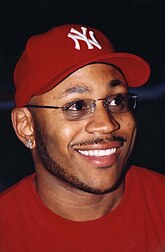
After acting in The Hard Way and Toys, LL Cool J released 14 Shots to the Dome in March 1993. The album had four singles ("How I'm Comin'", "Back Seat (of My Jeep)", "Pink Cookies in a Plastic Bag Getting Crushed by Buildings", "Stand By Your Man") and guest-featured Lords of the Underground on "NFA-No Frontin' Allowed". That June, the album went gold.
LL Cool J starred in In the House, an NBC sitcom, before releasing his album Mr. Smith (1995), which went on to sell over two million copies. Its singles included "Hey Lover", "Doin' It" and "Loungin". "Hey Lover", featured Boyz II Men, and sampled Michael Jackson's "The Lady in My Life". The song also earned him a Grammy Award. Another song from the album, "I Shot Ya Remix", included debut vocal work by Foxy Brown. In 1996, Def Jam released this "greatest hits" package, offering a good summary of Cool J's career, from the relentless minimalism of early hits such as "Rock the Bells" to the smooth-talking braggadocio that followed. Classic albums including Bigger and Deffer and Mama Said Knock You Out are well represented here. In December 1996, his loose cover of the Rufus and Chaka Khan song "Ain't Nobody" was included on the Beavis and Butt-Head Do America soundtrack & released as a single. LL Cool J's interpretation of "Ain't Nobody" was particularly successful in the United Kingdom, where it topped the UK Singles Chart in early-1997.[42] Later that same year, he released the album Phenomenon. The singles included "Phenomenon" and "Father". The official second single from Phenomenon was "4, 3, 2, 1", which featured Method Man, Redman & Master Pand introduced DMX and Canibus.
In 2000, LL Cool J released the album G.O.A.T., which stood for the "Greatest of All Time." It debuted at number one on the Billboard album charts,[43] and went platinum. LL Cool J thanked Canibus in the liner notes of the album, "for the inspiration". LL Cool J's next album 10 from 2002, was his ninth studio (10th overall including his greatest hits compilation All World), and included the singles "Paradise" (featuring Amerie), and the number 1 R&B hit "Luv U Better", produced by the Neptunes. Later pressings of the album added the 2003 Jennifer Lopez duet, "All I Have". The album reached platinum status. LL Cool J's tenth album The DEFinition was released on August 31, 2004. The album debuted at No. 4 on the Billboardcharts. Production came from Timbaland, 7 Aurelius, R. Kelly, and others. The lead single was the Timbaland-produced "Headsprung", which peaked at No. 7 on the Hip-Hop and R&B singles chart, and No. 16 on the Billboard Hot 100. The second single was the 7 Aurelius–produced, "Hush", which peaked at No. 14 on the BillboardHip-Hop and R&B chart and No. 26 on the Hot 100.
2006–2012: Exit 13 and touring
LL Cool J's 11th album, Todd Smith, was released on April 11, 2006. It includes collaborations with 112, Ginuwine, Juelz Santana, Teairra Mari and Freeway. The first single was the Jermaine Dupri-produced "Control Myself" featuring Jennifer Lopez. They shot the video for "Control Myself" on January 2, 2006, at Sony Studios, New York. The second video, directed by Hype Williams, was "Freeze" featuring Lyfe Jennings.

In July 2006, LL Cool J announced details about his final album with Def Jam Recordings, the only label he has ever been signed to. The album is titled Exit 13. The album was originally scheduled to be executively produced by fellow Queens rapper 50 Cent.[44] Exit 13 was originally slated for a fall 2006 release, however, after a 2-year delay, it was released on September 9, 2008, without 50 Cent as the executive producer. Tracks that the two worked on were leaked to the internet and some of the tracks produced with 50 made it to Exit 13. LL Cool J partnered with DJ Kay Slay to release a mixtape called "The Return of the G.O.A.T.". It was the first mixtape of his 24-year career and includes freestyling by LL Cool J in addition to other rappers giving their renditions of his songs. A track titled "Hi Haterz" was leaked onto the internet on June 1, 2008. The song contains LL Cool J rapping over the instrumental to Maino's "Hi Hater". He toured with Janet Jackson on her Rock Witchu tour, only playing in Los Angeles, Chicago, Toronto, and Kansas City.
In September 2009, LL Cool J released a song about the NCIS TV series. It is a single and is available on iTunes. The new track is based on his experiences playing special agent Sam Hanna. "This song is the musical interpretation of what I felt after meeting with NCIS agents, experienced Marines and Navy SEALs," LL Cool J said. "It represents the collective energy in the room. I was so inspired I wrote the song on set."[45]


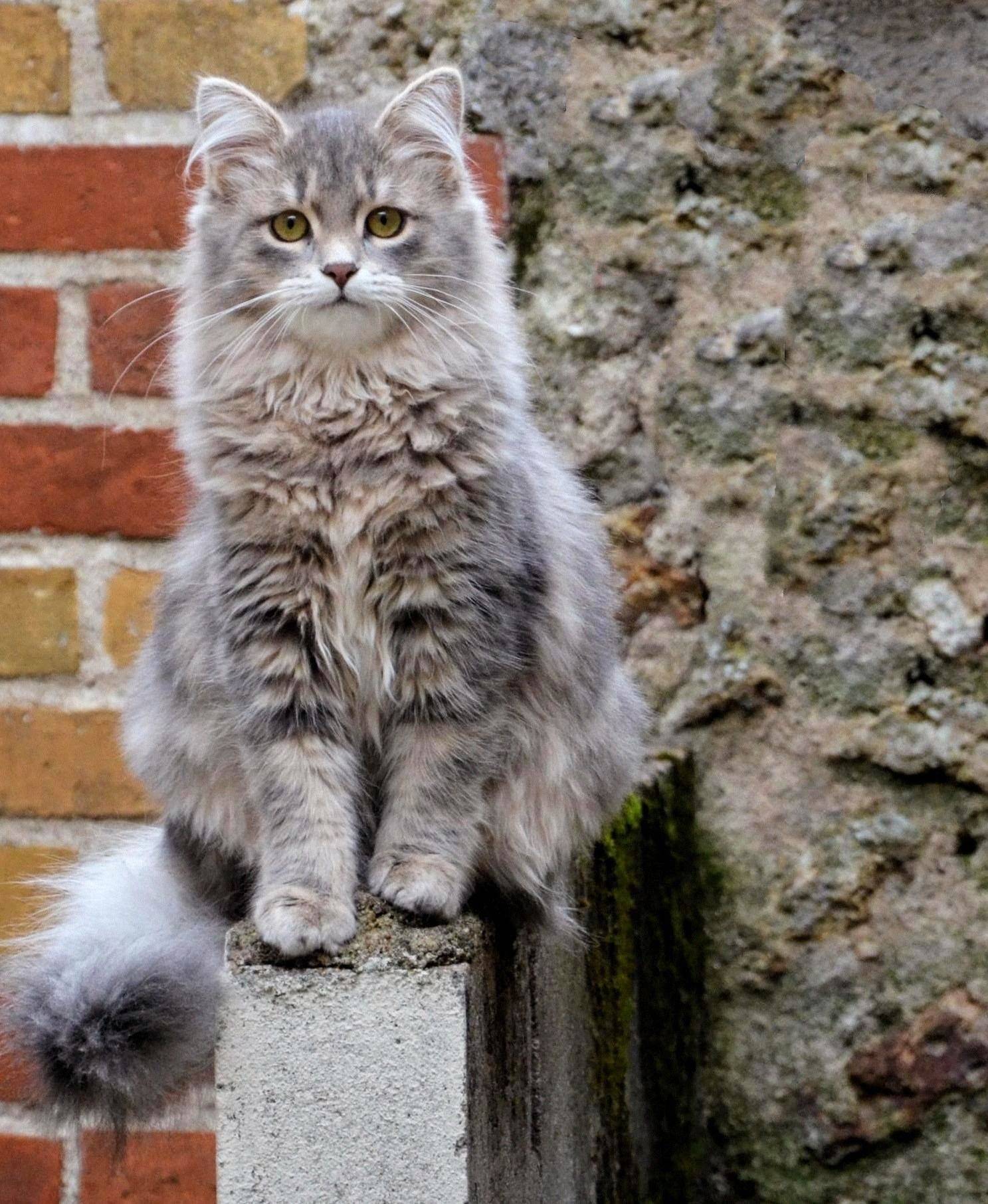
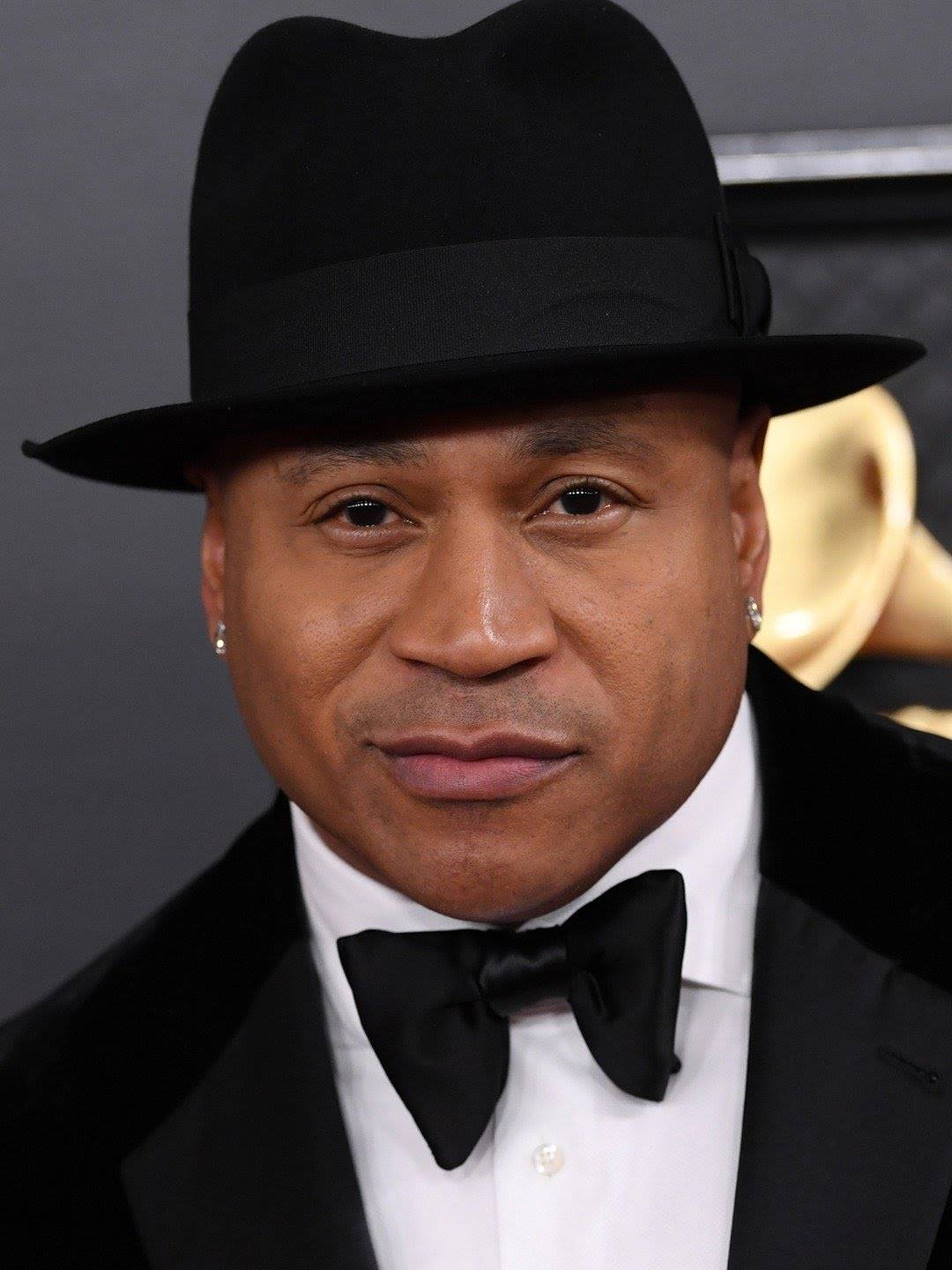
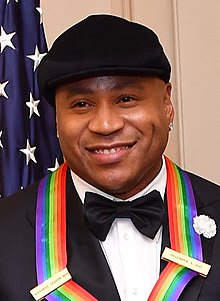
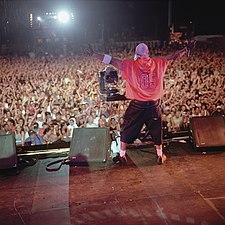

No comments yet
Be the first to share your thoughts!